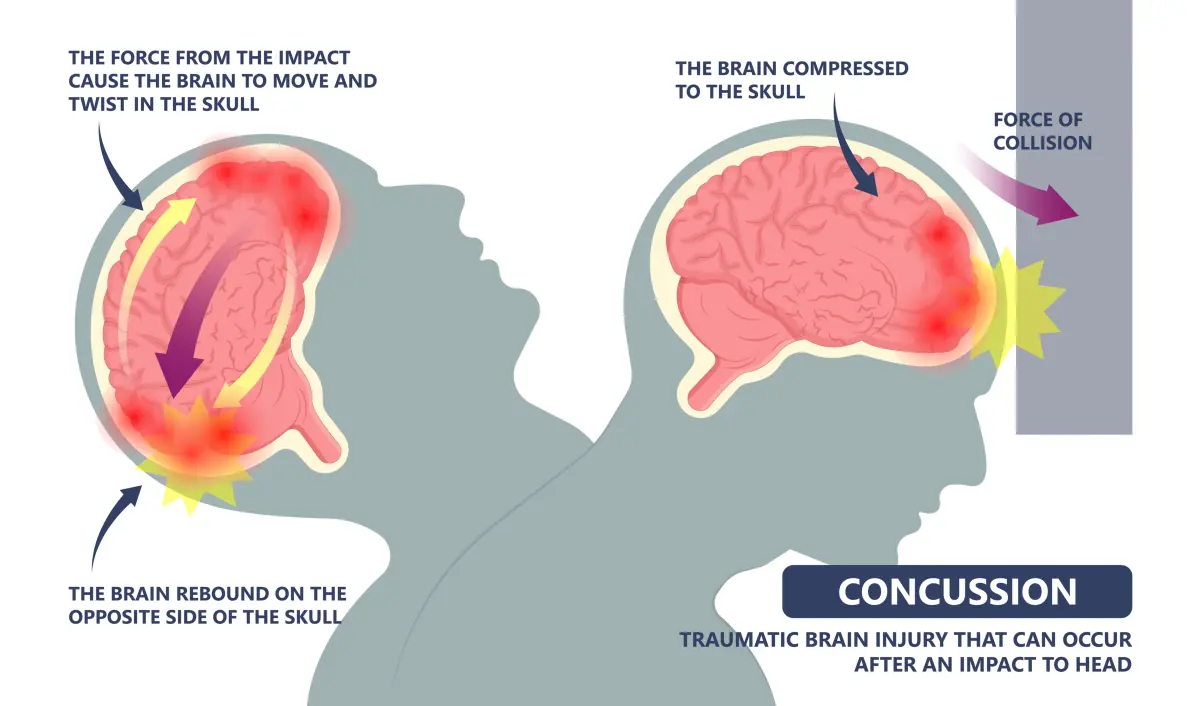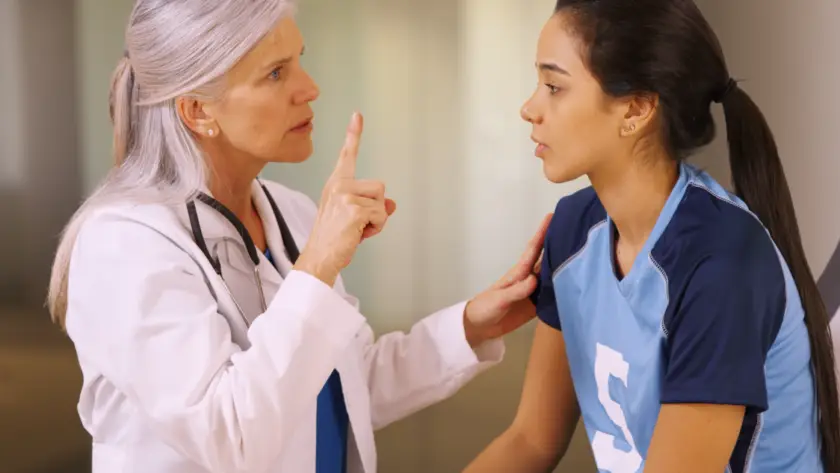Traumatic Brain Injury and Concussion Rehabilitation – Expert Insights

Discover Effective Treatments & Recovery Strategies with Activa Clinics
About concussion
A mild traumatic brain injury is known as a concussion (also known as mild TBI). It occurs when a bump, blow, or jolt to the head or by a hit to the body causes the head and brain to move violently back and forth. The brain might bounce about or twist in the skull due to this rapid movement, causing chemical changes in the brain and, in some cases, straining and destroying brain cells.
Signs and symptoms of a concussion
The following are some of the signs and symptoms of a concussion:
- headache
- memory problems
- double or blurred vision
- balance problems or trouble walking
- dizziness
- nausea or vomiting
- confusion
- being slow responding to questions
- light sensitivity
- slurred speech
- drowsiness
- slowed response to stimuli
Children and concussion
If you’re wondering if children can suffer concussions, then the answer is yes. The majority of concussions in children and teenagers occur when they are participating in sports. Especially, young people playing sports like football, ice hockey, lacrosse, soccer, and field hockey are at the most risk. It can also be caused by accidents involving motor vehicles or bicycles, falls, or a brawl.
A child who has suffered a concussion may show the following symptoms:
- have issues with memory or learning
- have a headache that gets worse
- feel depressed, quickly irritated or enraged, or anxious
- be unable to concentrate
- have problem sleeping
Concussion treatment
If you have sustained a concussion, it is essential to rest for the first 24-48 hours after the concussion and limit physical and other activities that require a lot of focus before you can resume participating in these activities. You don’t have to wait until your symptoms are completely gone to start participating in activities. However, if symptoms prevent you, you should stop for a few minutes before participating in an activity and attempt it again after some time or try a less extreme version of the exercise.
Concussion rehab
If your symptoms haven’t improved in 7 days, physical therapy can assist with balance, stability, attention, gait, and mood. In addition, studies suggest that early intervention of various treatments and supervised physical exercise can also help in concussion recovery to enhance brain function, resolve blood flow problems, and heal wounded tissue. So, the goal of your therapy will be to reduce symptoms while also figuring out what’s causing them.
Concussion rehab involves both assessment and treatment of concussion patients. The healthcare practitioners will start by assessing you and your injury and the symptoms. Then they may conduct neurological and cognitive tests to check your vision, memory, concentration, reflexes, and coordination. As concussions do not appear on MRI or CAT scans, a brain scan may not be necessary for mild concussions. But the healthcare practitioner may order those scans to investigate additional issues if someone was knocked unconscious, keeps vomiting, has a severe headache that gets worse, or was wounded in a serious accident.
Based on the tests and diagnostics, the healthcare practitioners will develop a personalized concussion management strategy for you which will include a wide range of therapies and treatments, such as:
- A physiotherapy exercise program to support the healing process and improve blood flow.
- A chiropractic treatment that can help to resolve balance, headaches, and vision issues caused by nerve injuries.
- Vestibular rehabilitation to solve vertigo and dizziness.
- Counselling to educate you on managing symptoms and assist in resuming daily activities and feeling more in control.
- Talk therapy for mental health issues.
Looking forward
If you’ve had a concussion previously, you’re very much likely to have one again. Therefore, you must avoid concussions after a head injury. To prevent another concussion, you need to make sure to decrease the risk of concussion by avoiding sports activities such as tackling or heading the ball in soccer.
In addition, if you’re riding a bike, or involved in any other sports activity, make sure to wear a helmet where possible. So, even if you have a concussion while wearing a helmet, it will protect you from a skull fracture or significant brain harm. A child who has sustained a second concussion should not ignore the symptoms or attempt to wait it out. Instead, they must immediately stop participating in activities or sports and should seek medical attention.
If you or someone you know has suffered a concussion and is looking for a rehabilitation clinic in Toronto, book an appointment now to get evidence-based treatment. At Activa Clinics, our team is up to speed on the most recent concussion research and rehabilitation procedures to provide the finest possible care for concussion and post-concussion syndrome.
